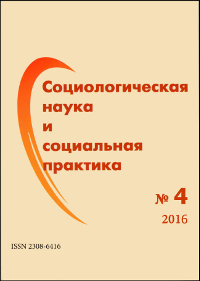Дилемма наркополитики: между запретом и попустительством
Аннотация
Литература
Всемирный доклад о наркотиках. Управление ООН по наркотикам и преступности 2010 г. [Электронный ресурс]: Организация объединённых наций. URL: https://www.unodc.org/documents/wdr/WDR 2010/World Drug Report 2010 rus web.pdf (дата обращения: 27.10.2016).
Доклад Международного комитета по контролю над наркотиками ООН за 2010 г. [Электронный ресурс]: Международный комитет по контролю за наркотиками. Нью-Йорк, 2011. URL: http://www.un.org/ru/development/surveys/docs/ incb2010.pdf (дата обращения 27.10.2016).
Комлев Ю. Ю. Теория рестриктивного социального контроля: монография / Ю. Ю. Комлев. — Казань: КЮИ МВД России, 2009. — 155 с.
Мирошниченко Л. Д. Наркотики и наркомания. Энциклопедический словарь. — М.: Изд-во «Перо», 2014. — 404 с.
Рыбакова Л. Н. Социальная терапия наркозависимых в Германии // Вопросы наркологии. — 2013. — № 3. — С. 100—112.
Черных А. Легализируй это: Александр Черных о предложении экспертов узаконить наркотики. 11 сентября 2014. [Электронный ресурс]: The Village. URL: http://www.the-village. ru/village/citv/situation/164739-drugs (дата обращения: 11.11.2016).
Alonso M. B. Cannabis social clubs in Spain. A normalizing alternative underway. [Электронный ресурс]: United Kingdom Cannabis Social Clubs. October 23, 2013. URL: http://www.ukcsc.co.uk/ cannabis-social-clubs-spain (дата обращения: 11.11.2016).
Birdwell J., Chapman J., Singleton N. Taking drugs seriously. A demos and UK drug policy commission report on legal highs. [Электронный ресурс]: TNI. URL: https://www.tni.org/files/ publication-downloads/taking drugs seriously report.pdf(дата обращения 14.05.2014).
Cohen P. Shifting the main purposes of drug control: From suppression to regulation of use. Reduction of risks as the new focus for drug policy. Paper presented at the Euro-Ibero-American Seminar, 8—9 October 1998, PaMcia da Bolsa, Porto, Portugal, promoted by the President of Portugal. // International Journal of Drug Policy. — 1999.— № 10. — P. 223—234.
Drug Consumption Rooms in Germany. A Situational Assessment by the AK Konsumraum. — Deutsche AIDS-Hilfe. Akzept e.V., Berlin, 2011. [Электронный ресурс]: URL: http://www.akzept. org/pdf/aktuel pdf7DKR07af1Eng.pdf (дата обращения: 27.10.2016)
Drug consumption rooms: an overview of provision and evidence (Perspectives on drugs). — EMCDDA, Lisbon, May 2016. [Электронный ресурс]: URL: http://www.emcdda.europa.eu/pub- lications/pods/drug-consumption-rooms (дата обращения 27.10.2016).
Eisenbach-Stangl I., Moskalewicz J., Thom B. Two Worlds of Drug Consumption in Late Modern Societies. [Электронный ресурс]: European Centre. URL: www.euro.centre.org/ data/1263572258 23948.pdf (дата обращения 14.05.2014).








 Издатель: Федеральное государственное бюджетное учреждение науки
Издатель: Федеральное государственное бюджетное учреждение науки